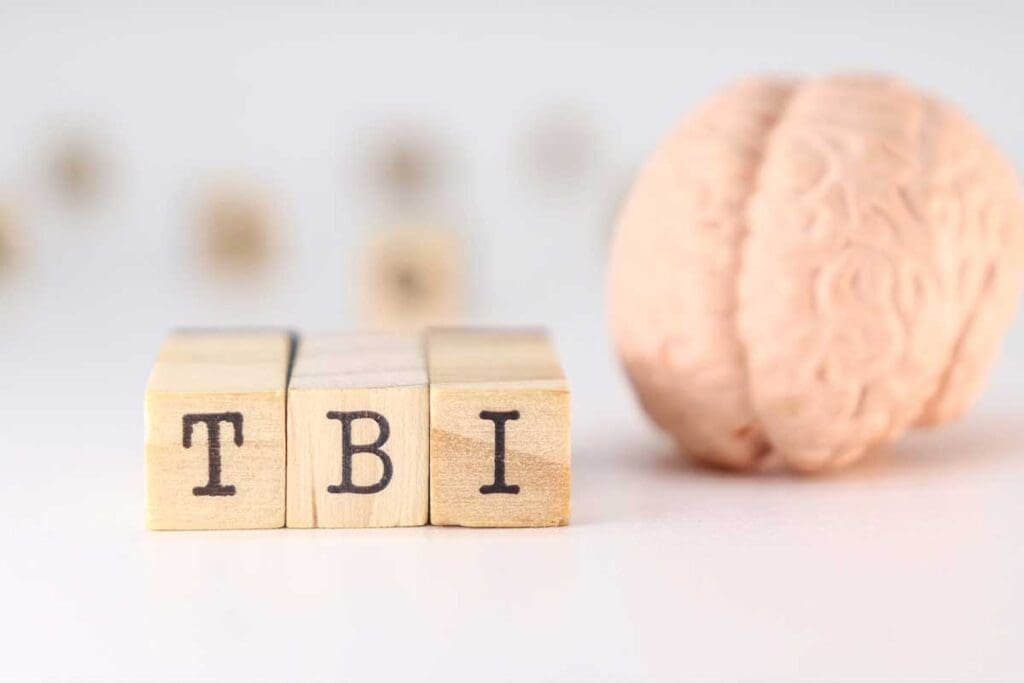Key Takeaways
Traumatic brain injuries occur when the brain experiences a sudden impact or jolt, often leading to temporary or permanent damage.
TBIs are classified as mild, moderate, or severe, with symptoms ranging from headaches and dizziness to cognitive impairment and physical disability.
Victims often require extensive medical care, rehabilitation, and emotional support to recover.
Family members play a critical role in caregiving but may face emotional and financial strain.
Legal options, including personal injury claims, can provide compensation to cover medical expenses, lost income, and long-term care needs.
What is a Traumatic Brain Injury (TBI)?
A traumatic brain injury occurs when a sudden impact, jolt, or penetrating injury disrupts the brain’s normal function. These injuries can result from various incidents, such as car accidents, falls, sports injuries, or acts of violence. TBIs are a leading cause of disability and death worldwide, affecting millions of individuals each year.
Types of TBIs
- Concussions: The most common and mildest form of TBI, often resulting in temporary symptoms such as headaches, dizziness, or confusion.
- Contusions: Bruising of the brain tissue, which can cause swelling and localized damage.
- Penetrating Injuries: When an object pierces the skull and damages brain tissue.
- Diffuse Axonal Injuries: Caused by strong rotational forces, leading to widespread damage to brain cells.
- Second-Impact Syndrome: Occurs when a person sustains a second concussion before fully recovering from the first.
Symptoms and Classification of TBIs
TBIs are typically classified as mild, moderate, or severe based on the Glasgow Coma Scale (GCS) score and the severity of symptoms.
Mild TBI (Concussion)
- Symptoms: Headaches, dizziness, nausea, memory loss, and temporary confusion.
- Duration: Symptoms typically resolve within weeks but may persist longer in some cases.
Moderate TBI
- Symptoms: Extended loss of consciousness, confusion lasting hours or days, and physical symptoms like seizures or coordination issues.
- Long-term Effects: May result in cognitive impairments, memory loss, or emotional changes.
Severe TBI
- Symptoms: Prolonged unconsciousness or coma, significant physical and cognitive impairments.
- Long-term Effects: Often results in permanent disability, requiring extensive care and rehabilitation.
Causes of Traumatic Brain Injuries
TBIs can result from a variety of incidents, including:
- Motor Vehicle Accidents
- A leading cause of TBIs, particularly in high-speed collisions where the head experiences sudden jolts or impacts.
- Victims often face additional injuries, such as whiplash or spinal cord damage.
- Falls
- Common among older adults and children, falls from heights or slipping on wet surfaces can cause TBIs.
- Often linked to hazardous conditions on properties or in workplaces.
- Sports Injuries
- Contact sports like football, hockey, or boxing pose a high risk for concussions and repeated brain injuries.
- Improper safety equipment or lack of oversight increases the risk.
- Workplace Accidents
- Falls, machinery accidents, or being struck by falling objects are common workplace hazards leading to TBIs.
- Acts of Violence
- Assaults, gunshot wounds, or domestic violence can cause severe brain trauma.
Short-Term Impact of a TBI
The immediate effects of a TBI depend on the severity of the injury and the part of the brain affected. Common short-term consequences include:
- Physical Symptoms:
- Headaches, dizziness, nausea, and fatigue.
- Difficulty with coordination or balance.
- Sensory changes, such as blurred vision or ringing in the ears.
- Cognitive Symptoms:
- Confusion or memory loss.
- Trouble concentrating or making decisions.
- Slowed thinking or difficulty processing information.
- Emotional and Behavioral Symptoms:
- Irritability, mood swings, or depression.
- Anxiety and heightened sensitivity to light or noise.
Long-Term Impact of a TBI
For moderate to severe TBIs, long-term consequences can include:
- Cognitive Challenges
- Memory loss or amnesia.
- Difficulty with problem-solving, planning, or decision-making.
- Impaired communication, including trouble understanding or producing speech.
- Physical Disabilities
- Paralysis or loss of motor function.
- Chronic headaches or seizures.
- Sensory impairments, such as loss of vision, hearing, or smell.
- Emotional and Behavioral Changes
- Depression, anxiety, and PTSD are common after TBIs.
- Personality changes, such as increased aggression or impulsivity.
- Financial Strain
- Medical bills, rehabilitation, and lost income can create significant financial burdens for victims and their families.
Support and Treatment Options
While TBIs can have devastating consequences, advances in medicine and rehabilitation offer hope for recovery. The key is to address both the physical and emotional aspects of the injury.
- Medical Treatment
- Immediate Care: Emergency surgery may be needed to relieve pressure on the brain or repair fractures.
- Medications: Used to manage pain, reduce swelling, or prevent seizures.
- Ongoing Monitoring: Regular check-ups to track recovery and address complications.
- Rehabilitation
- Physical Therapy: Helps regain strength, mobility, and coordination.
- Occupational Therapy: Focuses on relearning daily tasks and regaining independence.
- Speech Therapy: Addresses communication challenges or swallowing difficulties.
- Cognitive Rehabilitation: Improves memory, attention, and problem-solving skills.
- Psychological Support
- Counseling or therapy to address emotional and mental health challenges.
- Support groups for victims and caregivers to share experiences and advice.
- Assistive Technology
- Mobility aids, such as wheelchairs or walkers.
- Communication devices for those with speech impairments.
Support for Families
The impact of a TBI isn’t limited to the victim; families often face emotional and financial strain as well.
- Emotional Challenges
- Caregivers may experience burnout, stress, or feelings of helplessness.
- Family dynamics can change as loved ones adjust to new responsibilities.
- Financial Strain
- Loss of income if the victim or caregiver must leave work.
- Ongoing costs for medical care, therapy, or home modifications.
- Finding Support
- Local and online support groups can connect families with others facing similar challenges.
- Financial aid programs or non-profits may offer assistance with medical bills or caregiving costs.
Legal Options for TBI Victims
If a TBI was caused by someone else’s negligence, victims may be entitled to compensation through a personal injury claim.
Types of Compensation
- Economic Damages: Covers medical expenses, lost wages, and rehabilitation costs.
- Non-Economic Damages: Compensates for pain, suffering, and loss of quality of life.
- Punitive Damages: Awarded in cases of gross negligence or intentional harm.
Steps to Take
- Document the injury and its impact with medical records, photos, and witness statements.
- Consult an experienced personal injury attorney to evaluate your case.
- File a claim or lawsuit against the responsible party, such as a negligent driver, property owner, or employer.
Preventing TBIs
While not all TBIs can be avoided, taking proactive measures can reduce the risk:
- In Vehicles: Always wear seatbelts and use proper child safety seats.
- At Home: Install handrails, secure rugs, and keep walkways clear to prevent falls.
- In Sports: Use proper safety equipment and follow concussion protocols.
- At Work: Adhere to safety regulations and wear protective gear when required.
Conclusion
Traumatic brain injuries are life-changing events that affect every aspect of a victim’s life, from their physical health to their relationships and finances. While the challenges can be overwhelming, understanding the impact of a TBI and accessing the right resources can make a significant difference in recovery.
For victims and families navigating the aftermath of a TBI, support is available. From medical care and therapy to legal compensation, there are paths to rebuilding your life. At Personal Injury Ally, we’re committed to helping TBI victims and their families secure the justice and resources they need to move forward.



